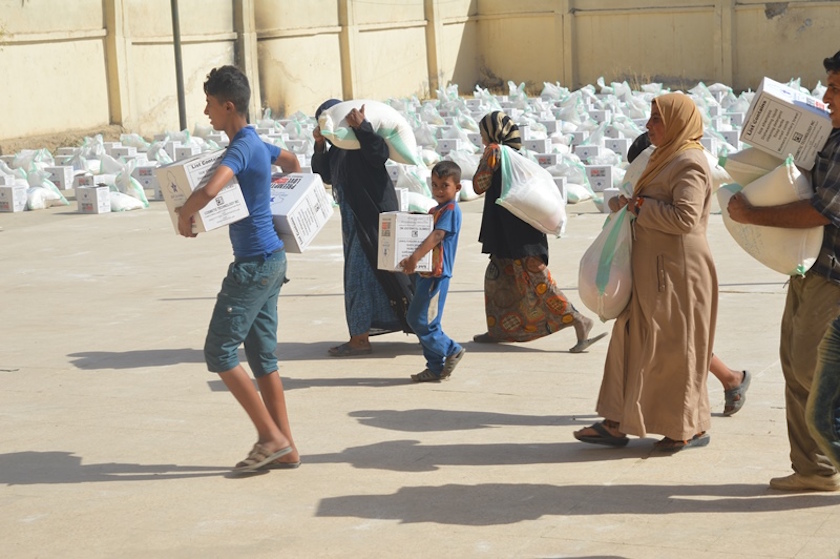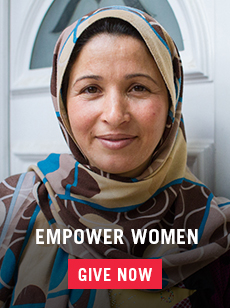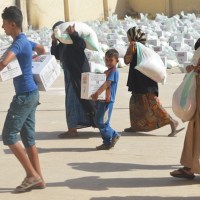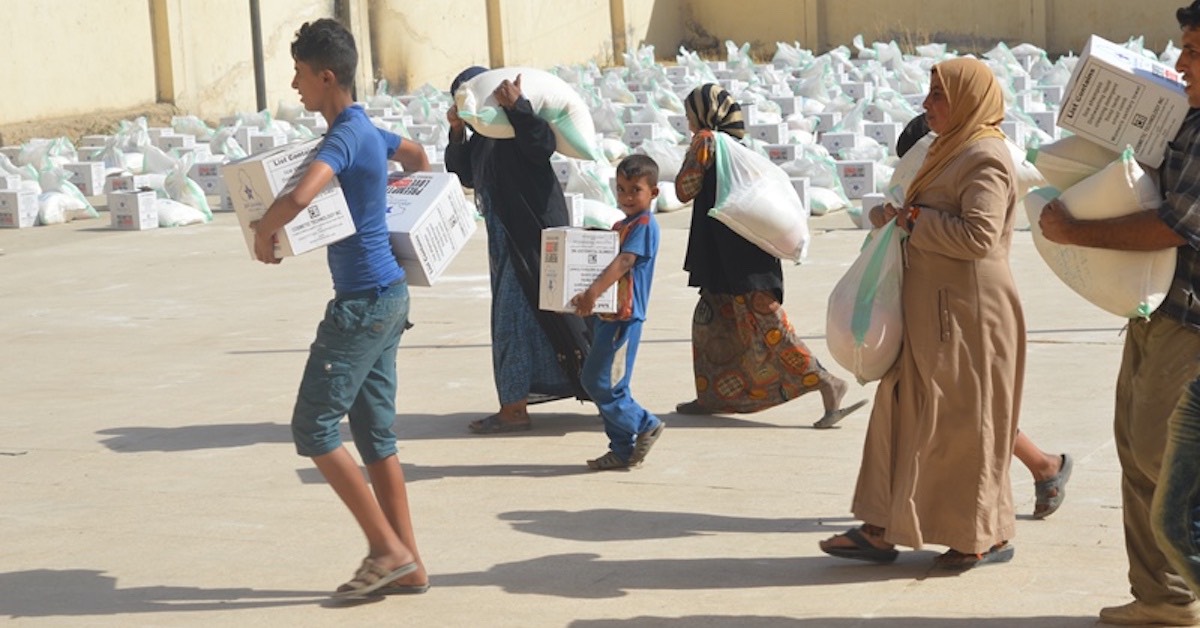 Displaced families near Mosul receive food packages and hygiene kits, after their town was liberated from ISIS
Displaced families near Mosul receive food packages and hygiene kits, after their town was liberated from ISIS
One million civilians remain in ISIS-held Mosul today. The battle to dislodge the militant group will force many residents—if not all of them—to run for their lives, triggering a massive refugee crisis.
Which begs the question: Why didn’t Mosul families flee when they had the chance? Why didn’t they take a hint when ISIS first occupied the city—or as the final battle for Mosul drew near?
Here are three reasons…
1. Actually, many did.
Approximately half a million Mosul residents escaped within the first few days that ISIS seized control of the city in June 2014. Those with cars drove to safer regions, the rest fled on foot. Most remaining residents from ethnic and religious minorities fled soon after. Those who didn’t either successfully passed themselves off as the majority Sunnis, or were killed.
Assyrian and Chaldean Christians were initially given four options: convert, leave, pay a high tax, or be killed. Quickly the options were reduced to just two—leave or be killed. Turkmen, Shabak, and Shia Muslims were given no options at all—if they were captured, they were killed. Yazidis were singled out by ISIS. Men, teenaged boys and women were killed, young children were kidnapped and sent to jihadi training camps. Teenaged Yazidi girls and young women were kidnapped and forced into slavery.
2. It wasn’t long before ISIS made it impossible to leave.
ISIS officials took control of all government offices, hospitals, universities, and transportation systems. They controlled the issuing of identification papers, ownership of property, marriages, and even the naming of babies. It became virtually impossible to leave.

Some wealthy residents were able to buy safe passage out, but this wasn’t an option for most. For many Iraqi families, their entire life savings are tied up in their home. To flee was to lose everything and be instantly plunged into poverty. ISIS sold or burned the properties of those who fled, so families knew they would never be able to get their property—and, therefore, their savings—back.
ISIS militants also controlled roads and checkpoints, preventing anyone from escaping by car. Anyone needing to leave the city for medical emergencies had to return promptly, or their remaining family members were at risk of death.
Other potential escape routes were booby trapped or strewn with landmines. Militants kept vigilant watch over the city’s perimeter—anyone caught trying to escape was killed immediately. And a wide no-man’s land around the city ensured that those who tried to flee—at night, on foot—were at serious risk of death by bombing, or by dehydration, should they make it out of the city limits.
In the end, many families just weren’t willing to be split apart in order to escape. To flee on foot is physically demanding—to flee with small children or elderly parents would be impossible. Many families chose to remain under difficult circumstances so they could stay together.
3. It’s INCREDIBLY dangerous for families to try to leave now.
According to a recent report, “The Iraqi military wants Mosul residents to stay put when the offensive begins and has been airdropping leaflets advising them not to leave.”
Families leaving Mosul now face all the same threats they did just weeks ago, but now with the additional risk of being killed in crossfire or being mistaken for ISIS militants trying to escape.
For the majority of families who have survived more than two years under ISIS oppression, leaving now isn’t an option. They will have to wait for the war to run its course, and hope that they make it through together.
Many families in Mosul are still waiting for their chance to escape, but the dam will burst soon—as it did in Fallujah. Let’s be ready to meet them with lifesaving aid. $65 can feed a fleeing family for a month.


